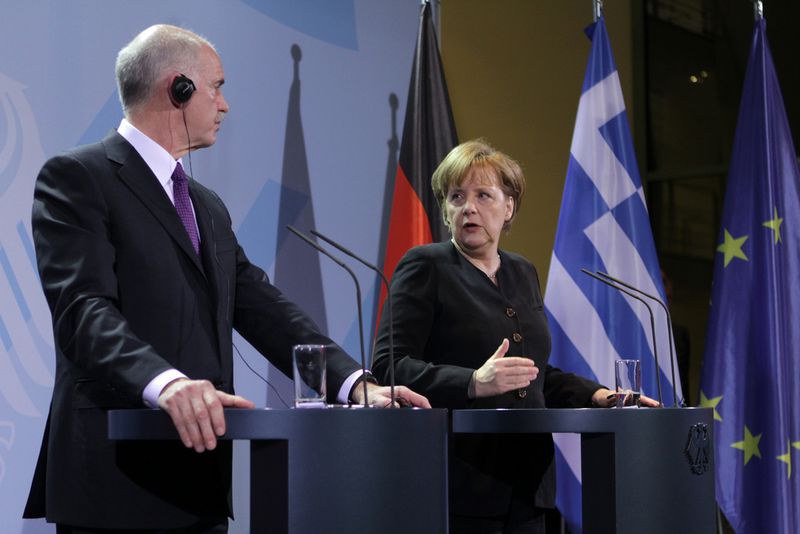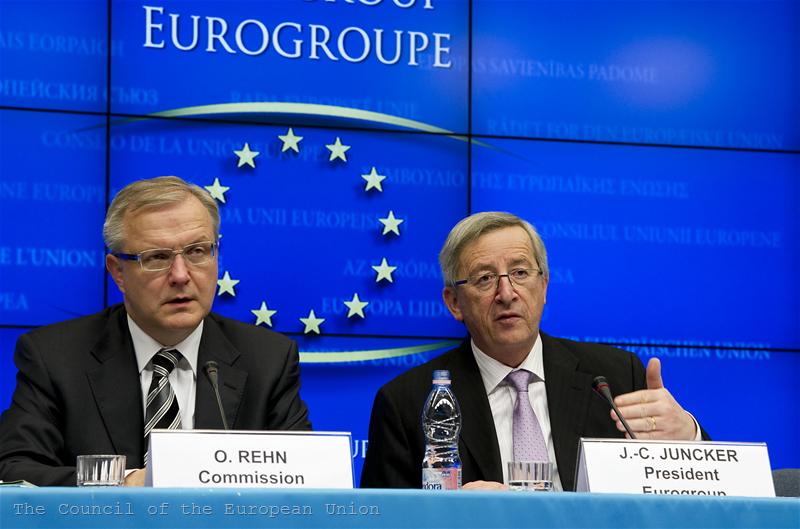Brussels wants a bigger and more flexible rescue fund for the euro area
Ralitsa Kovacheva, January 18, 2011
 The European Commission wants the effective financial capacity of the European Financial Stability Facility (the rescue fund for the euro area) to be reinforced and the scope of its activities to be widened. This is clear from the Annual Growth Survey, presented in Brussels on January 12. According to the Commission, this will contribute to a more comprehensive response to the debt crisis in the eurozone.
The European Commission wants the effective financial capacity of the European Financial Stability Facility (the rescue fund for the euro area) to be reinforced and the scope of its activities to be widened. This is clear from the Annual Growth Survey, presented in Brussels on January 12. According to the Commission, this will contribute to a more comprehensive response to the debt crisis in the eurozone.
The announcement was made by the Commission President, Jose Manuel Barroso, during a special briefing dedicated to the presentation of the Annual Growth Survey, which had given the start of the so-called European semester. Expectedly, a possible increase of the rescue fund attracted the attention of the journalists, who almost completely ignored the survey and swept President Barroso and the European Commissioner for Economic and Monetary Affairs, Olli Rehn, with questions about the rescue fund.
The topic is hot because at the end of last year it caused severe disputes among eurozone countries. Germany's and France's strong resistance, however, did not even allow this topic to be discussed at the December European Council. The arguments against were that even after the loan for Ireland, the EFSF was working with one-tenth of its capacity and did not need to be increased.
The requests for its increase, in turn, were related to fears that Portugal would also require assistance in the coming months. Recently, rumours emerged that the country was even under pressure from other eurozone countries, including France and Germany, to ask for help from the rescue fund. Concerns about Portugal's possible collapse under heavy market interests are linked to fears that this will swamp Spain, whose banks are largely exposed to Portugal. Since the beginning of the year speculations have become even more frequent that Belgium is also among the candidates for saving.
These days, however, the news about Lisbon are rather good. Portugal held a successful auction of government bonds totaling 1.25 billion euro. A day earlier Greece managed to raise nearly 2 billion euro from the markets, instead of an expected amount of 1.5 billion. Spain also held a successful auction and sold 3 billion euro of five-year bonds.
Representatives of the European Commission once again assured that they were optimistic about Portugal, which provoked many questions to President Barroso why then he wanted the rescue fund to be increased. Barroso explained that this was supposed to be a precaution rather than a real necessity. We have to reassure the markets that the European leaders, especially those in the euro area, are ready to do their best to maintain financial stability, the President of the European Commission said.
The EFSF, which was established in May 2010 because of Greece, has the capacity to issue instruments worth up to 440 billion euro, guaranteed by the euro area member states. Guarantees amount to 120% of each county’s share in the European Central Bank capital. Currently, however, the operational capacity of the Fund amounts to 250 billion euro. In order to reach its full capacity, it is necessary the guarantees of the member states to be increased at least twice, an anonymous source explained to EurActiv.
On the other hand, the EFSF chief Klaus Regling has repeatedly assured that the fund was sufficient in its present form and size and that there was high investors' interest in its financial instruments. Japan has already announced its decision to buy 20% of the bonds which the European Stability Facility would release in the end of the month. China has also expressed willingness to buy some debt from Greece, Portugal and Spain.
All this does not answer the question why the Commission wants the size of the fund to be increased, but maybe the answer lies in the other part of the proposal - the scope of its action to be increased, namely - the fund to have the right to buy government bonds, which is being done now by the European Central Bank. Another interesting point is the statement made by Commissioner Rehn in an article for the  Financial Times - that the currently discussed changes in the size and functions of the rescue fund, must apply to the permanent fund too (the European Stability Mechanism) which will be enacted after mid-2013.
Financial Times - that the currently discussed changes in the size and functions of the rescue fund, must apply to the permanent fund too (the European Stability Mechanism) which will be enacted after mid-2013.
Given the sharp opposition of some member states, it is curious that, according to EU Commissioner Olli Rehn, some progress has been made in the consultations on the matter. According to President Jose Manuel Barroso, the topic will be discussed at the European Council on February 4. Although designed to focus on energy policy, obviously that European Council (as happened with the European Council for Foreign Affairs last fall) will also be dominated by the ongoing financial problems of the eurozone.
 | © www.primeminister.gov.gr
| © www.primeminister.gov.gr | © European Commission- Audiovisual Service
| © European Commission- Audiovisual Service | © The Council of the European Union
| © The Council of the European Union